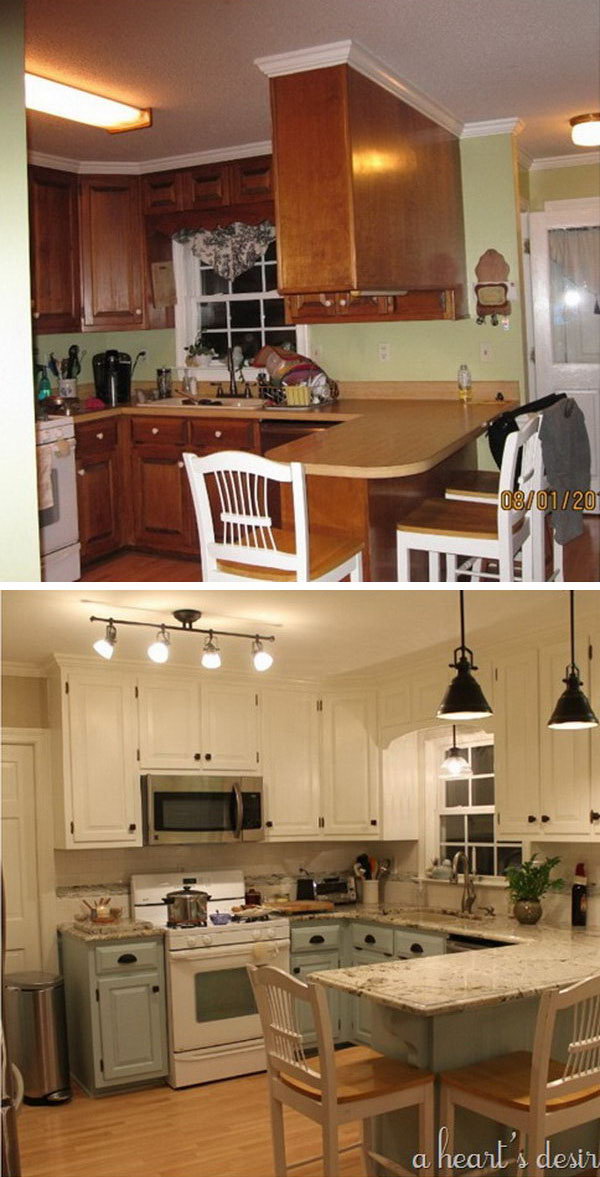A transformation of the culinary space, this concept encompasses various methods to improve the aesthetic appeal and functionality of a kitchen. Examples range from simple cosmetic updates, such as painting cabinets and replacing hardware, to significant structural alterations including layout changes and appliance upgrades.
Reconfiguring a kitchen can greatly increase property value and enhance the homeowner’s daily experience. Historically, kitchen design has evolved from purely utilitarian spaces to central gathering areas within the home. A modern approach focuses on efficiency, incorporating features that ease food preparation, cooking, and cleanup, while also providing an inviting atmosphere for family and guests.
The following sections will delve into specific approaches for renovating a kitchen, covering areas such as budget planning, material selection, and design considerations for various kitchen styles and spatial layouts. Each element contributes to the overall success of the endeavor.
1. Budgetary constraints
Budgetary limitations form a foundational parameter for all kitchen renovation projects. Resource allocation directly influences the scope, materials, and labor involved. A restricted budget necessitates prioritizing essential upgrades over purely aesthetic modifications. For example, addressing failing plumbing or electrical systems takes precedence over installing premium countertops or designer lighting fixtures.
Ignoring financial limitations can lead to project delays and cost overruns, potentially compromising the entire endeavor. Effective budget management includes establishing a realistic spending plan, obtaining multiple quotes from contractors, and identifying cost-saving alternatives without sacrificing quality or safety. Selecting less expensive but durable materials, such as laminate countertops instead of granite, represents a common compromise.
In summary, a well-defined and rigorously adhered-to budget serves as a critical framework for any kitchen transformation. Awareness of monetary limitations ensures that the project remains feasible and aligns with long-term financial objectives, ultimately leading to a practical and achievable kitchen remodel.
2. Spatial optimization
Spatial optimization, in the context of kitchen renovations, directly affects functionality and user experience. It entails strategically arranging kitchen components to maximize workflow efficiency and minimize wasted space. For example, the “work triangle” conceptconnecting the sink, refrigerator, and stovetopillustrates effective spatial planning by reducing unnecessary steps between essential tasks. Failing to optimize space can result in a cramped, inefficient kitchen, hindering cooking and cleaning activities. A well-optimized kitchen, conversely, increases productivity and enjoyment of the space.
A real-life example involves converting a galley kitchen into an open-concept design by removing a non-load-bearing wall. This immediately expands the visual space, creating a more inviting environment. Another instance is the installation of pull-out shelves and organizers within cabinets, maximizing storage capacity and accessibility. Adaptive storage solutions are particularly beneficial in smaller kitchens where every square inch matters. The impact of spatial optimization extends beyond mere aesthetics; it influences how smoothly daily tasks are performed and the overall value of the home.
Effective spatial adjustments require careful consideration of individual needs and preferences, along with a thorough understanding of kitchen design principles. Challenges may arise from existing structural limitations or budget constraints, necessitating creative and innovative solutions. Ultimately, prioritizing spatial optimization within a kitchen renovation transforms a potentially frustrating area into a highly functional and aesthetically pleasing hub of the home.
3. Material durability
Material durability constitutes a critical element in the longevity and overall success of any kitchen renovation endeavor. The selection of robust materials directly impacts the kitchen’s ability to withstand daily wear and tear, moisture exposure, and temperature fluctuations. Inferior materials can lead to premature degradation, necessitating costly repairs or replacements, thereby negating the initial benefits of the renovation. For instance, using low-quality countertop surfaces may result in scratches, stains, or chipping, diminishing both the aesthetic appeal and functional utility of the kitchen. Conversely, employing durable materials such as stainless steel, engineered quartz, or solid wood enhances the kitchen’s resilience and extends its lifespan.
Consider the example of flooring selection. Opting for laminate flooring, which is less resistant to water damage than ceramic tile or luxury vinyl, in a high-moisture environment like a kitchen can result in swelling, warping, and eventual replacement. Similarly, choosing cabinets constructed from particleboard rather than solid wood or plywood increases the risk of sagging shelves and joint failures over time. A well-executed kitchen upgrade considers not only immediate aesthetic improvements but also the long-term structural integrity of the space. Prioritizing material robustness translates into reduced maintenance costs and sustained satisfaction with the renovated kitchen.
In summary, the selection of durable materials is an investment in the future of the kitchen. While initial costs may be higher, the long-term benefits of reduced maintenance, increased longevity, and sustained aesthetic appeal far outweigh the savings associated with cheaper, less durable alternatives. A comprehensive understanding of material properties and their resistance to common kitchen stressors is essential for achieving a successful and enduring renovation.
Conclusion
This exploration of kitchen makeover ideas has emphasized key aspects such as budgetary constraints, spatial optimization, and material durability. Careful consideration of these elements is paramount for a successful transformation, ensuring functionality, longevity, and aesthetic appeal. Planning and informed decision-making are necessary components of any successful remodeling endeavor.
The principles outlined provide a framework for approaching kitchen transformations with foresight. By prioritizing both practical considerations and design preferences, the resulting space can elevate both the value of the property and the daily lives of its occupants. The future of kitchen design likely involves increasing integration of smart technology and sustainable materials.
